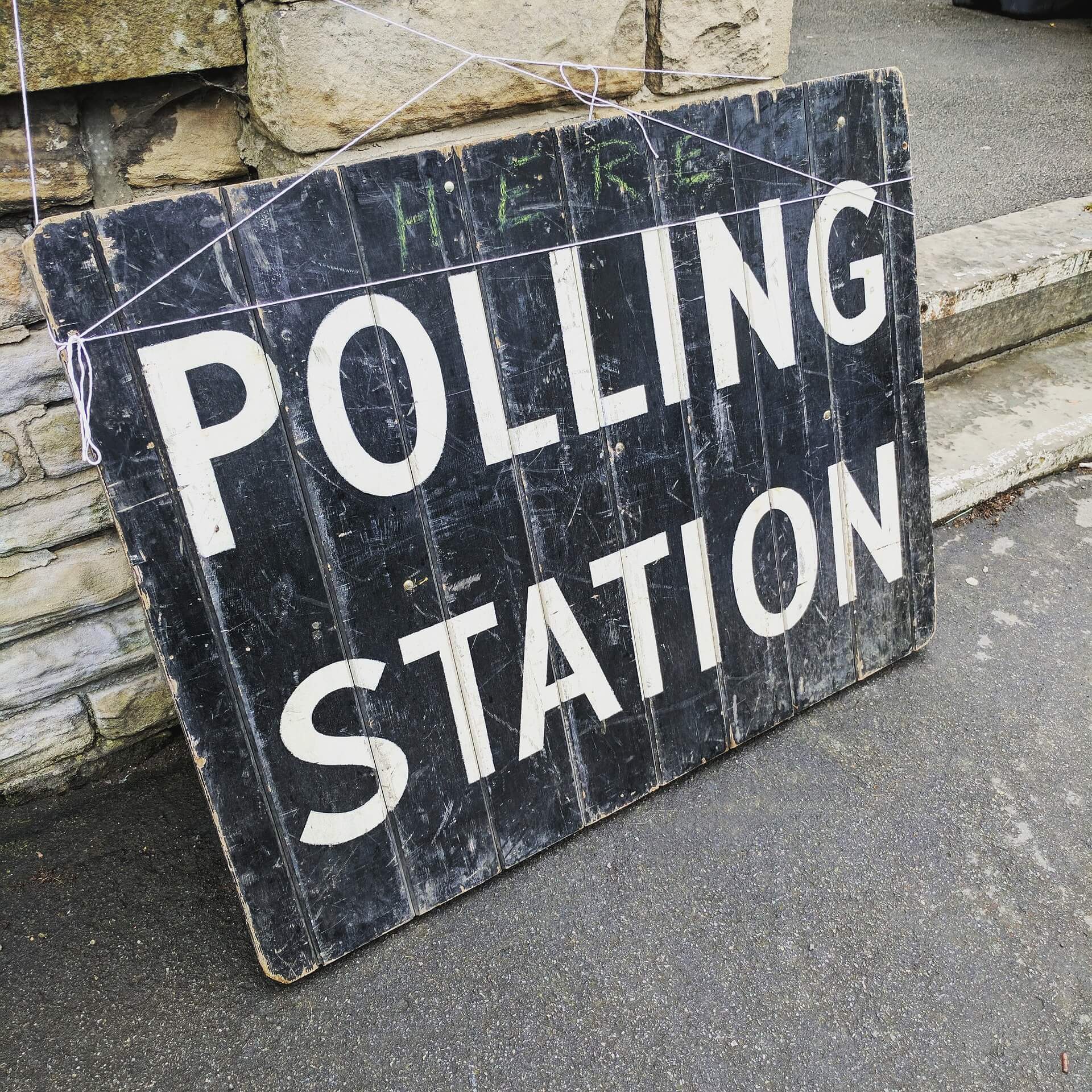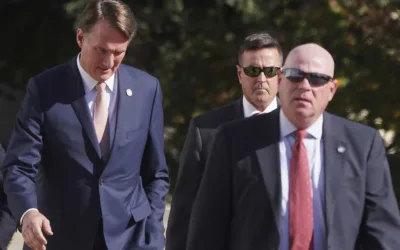
Despite the president’s claims, would-be observers can’t just show up at the polling places.
RICHMOND-During Tuesday night’s debate, President Donald Trump put out a call to his supporters. He asked them to “go into the polls and watch very carefully,” claiming this election would feature widespread fraud. But it’s not that simple. You can’t just walk into a polling place and claim to be a candidate’s observer. The Virginia Code is pretty clear about what is and isn’t allowed.
“There are both state and federal protections in place to protect voters from being harassed or intimidated while trying to exercise their right to vote,” said Virginia Attorney General Mark Herring. “While there are authorized ‘poll watchers’ who monitor polls on Election Day, their duties are clearly laid out. Voter harassment and intimidation will not be tolerated in Virginia.”
The concern for Herring and other state officials is that a confrontation will take place. Someone might try to harass voters opposing their candidate or force their way into a polling site. They point to the Sept. 19 incident in Fairfax County as an example of intimidation tactics. Supporters of President Trump went to the Fairfax County Government Center that morning, chanting “four more years” and yelling at people as they waited in line to cast a ballot.
Virginia Code Section 24.2-607 states “no person shall conduct himself in a noisy or riotous manner at or about the polls so as to disturb the election or insult or abuse an officer of election.” For several hours, the group appeared to violate that. But while that portion of the Code covers incidents outside the polling place, there’s another list of rules for what happens inside.
Who can go into a polling place?
We know voters can of course go inside a polling place. The same goes for poll workers. But when it comes to observers, there’s a very restricted list. Attorney General Herring’s staff directed the Dogwood to Section 24.2-604.4 of the Virginia Code. That segment says poll workers can “permit one authorized representative of each political party or independent candidate” to remain in the room at all times. That means one designated observer for the Republican Party and one for the Democratic Party. Independent candidates can also be represented. Now that doesn’t have to be the same person all day. Observers can switch out, but again, it’s limited to one person unless you negotiate.
Part of that section in the Code says political parties can talk with a county’s officers of election to add two extra observers. Specifically, it says “the officers of election shall have discretion to permit up to three authorized representatives of each political party or independent candidate.”
And again, there are restrictions. Any observer “shall be a qualified voter of any jurisdiction of the Commonwealth.” Put plainly, if you can’t vote in Virginia, you can’t be an observer.
You also can’t just decide to show up at a polling place. To be considered a legitimate observer, someone “shall present to the officers of election a written statement, designating him to be a representative of the party or candidate.” That statement has to be signed by either the candidate or the local chairperson of the political party.
Five things observers can’t do
If you’re approved to be an observer, that doesn’t mean you have free reign in the room. The Code spells out a list of five things you’re not allowed to do. If you break the rules on any of these five, the poll workers can have you removed. The list states that:
- You can’t campaign inside the room.
- They can’t wear political clothing, buttons, signs, or anything else that shows their candidate’s name or political party.
- Observers can’t loiter or congregate. They also can’t give, offer, or show any ballot, ticket, or other campaign material to any person inside the room. Literally all they can do is observe.
- They can’t stop or delay a qualified voter, or interfere with the orderly conduct of the election.
- Observers also can’t help voters. You can’t provide assistance to anyone confused or otherwise needing help in casting their ballots. The poll workers can handle that.
What if you break the rules?
Now here’s the big question. If you don’t follow those rules, then what? You face everything from a Class 1 misdemeanor to a Class 5 felony. Let’s make one thing clear right off: militia groups are not welcome inside the polls. If you try to “falsely assume or exercise the functions, powers, duties and privileges” of any type of law enforcement officer, that can mean jail time.
Herring said that can apply to any “group of private militia members coming as a unit, heavily armed with assault-style weapons, dressed in fatigues and other military accessories, and acting in a coordinated fashion.”
It’s also a Class 1 misdemeanor to “hinder, intimidate or interfere with any qualified voter” or to use “threats, bribery or other means” to intimidate people at the polls. If you go beyond that, if you try to “conspire to injure, oppress, threaten, intimidate, prevent or hinder any citizen” from voting, you’ll face a Class 5 felony.
“These types of protection have an important history in our law,” Herring said. “They have helped vindicate racial equality in voting, ensure the constitutional guarantee of equal protection of the laws, and invoke the basic respect that is due every voter at the polls.”Both absentee voting and early voting are currently going on in Virginia. If you have any questions, we can answer them here. Election Day is Nov. 3.

Here’s everything you need to know about this month’s Mercury retrograde
Does everything in your life feel a little more chaotic than usual? Or do you feel like misunderstandings are cropping up more frequently than they...

VIDEO: Check out Dogwood’s new merch line
Big news, Virginia! We've officially launched our Dogwood merch line 🎉 This year, we celebrate 5 years of bringing you Virginia news you can use....

VIDEO: Your support matters!
Your support matters! Donate today. @vadogwoodnews Your support matters! Visit our link in bio to donate today. #virginianews #virginia #community...

Op-Ed: Virginia’s new Democratic majorities pass key bills to improve your lives, but will Youngkin sign them?
The 2024 Virginia General Assembly regular session has wrapped up. It was a peculiar session from the outset, with Democratic majorities in the...

From the state rock to the state flower, here’s how Virginia got its symbols
Have you ever wondered why the Dogwood is the state flower? Or how the cardinal became the state bird? We’re here to answer those questions and more...

VIDEO: Second-gentleman Douglas Emhoff gives speech on reproductive freedom
Second gentleman, Douglas Emhoff touched on reproductive freedom not only being a woman's issue but "an everyone's issue" during the Biden-Harris...




